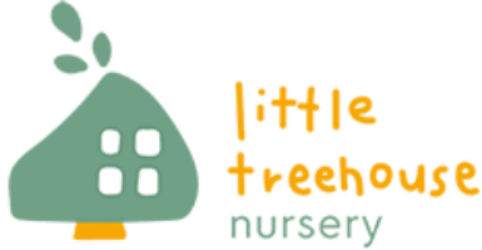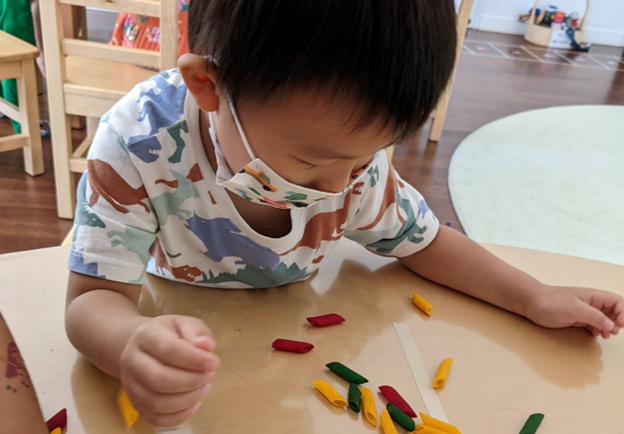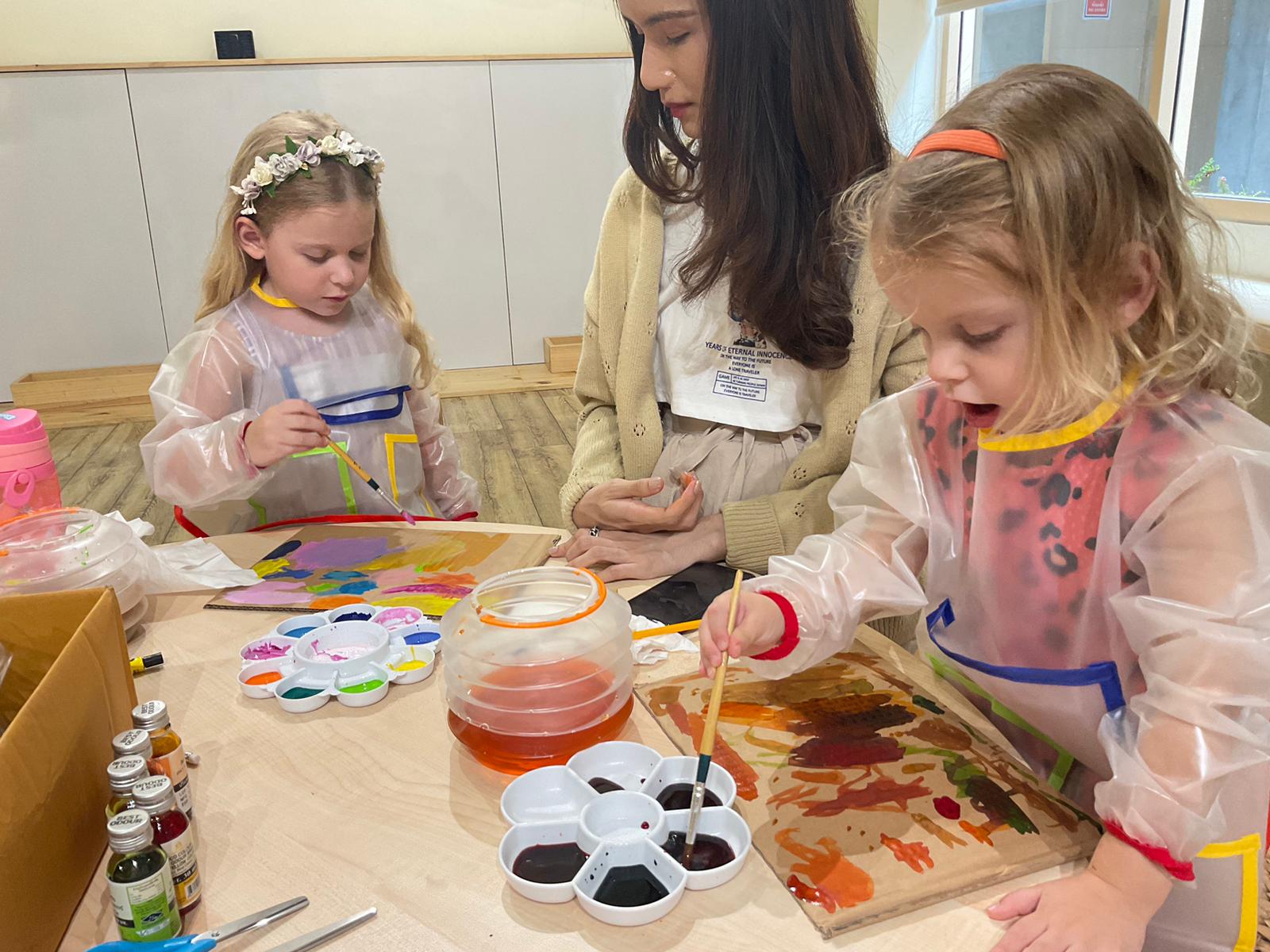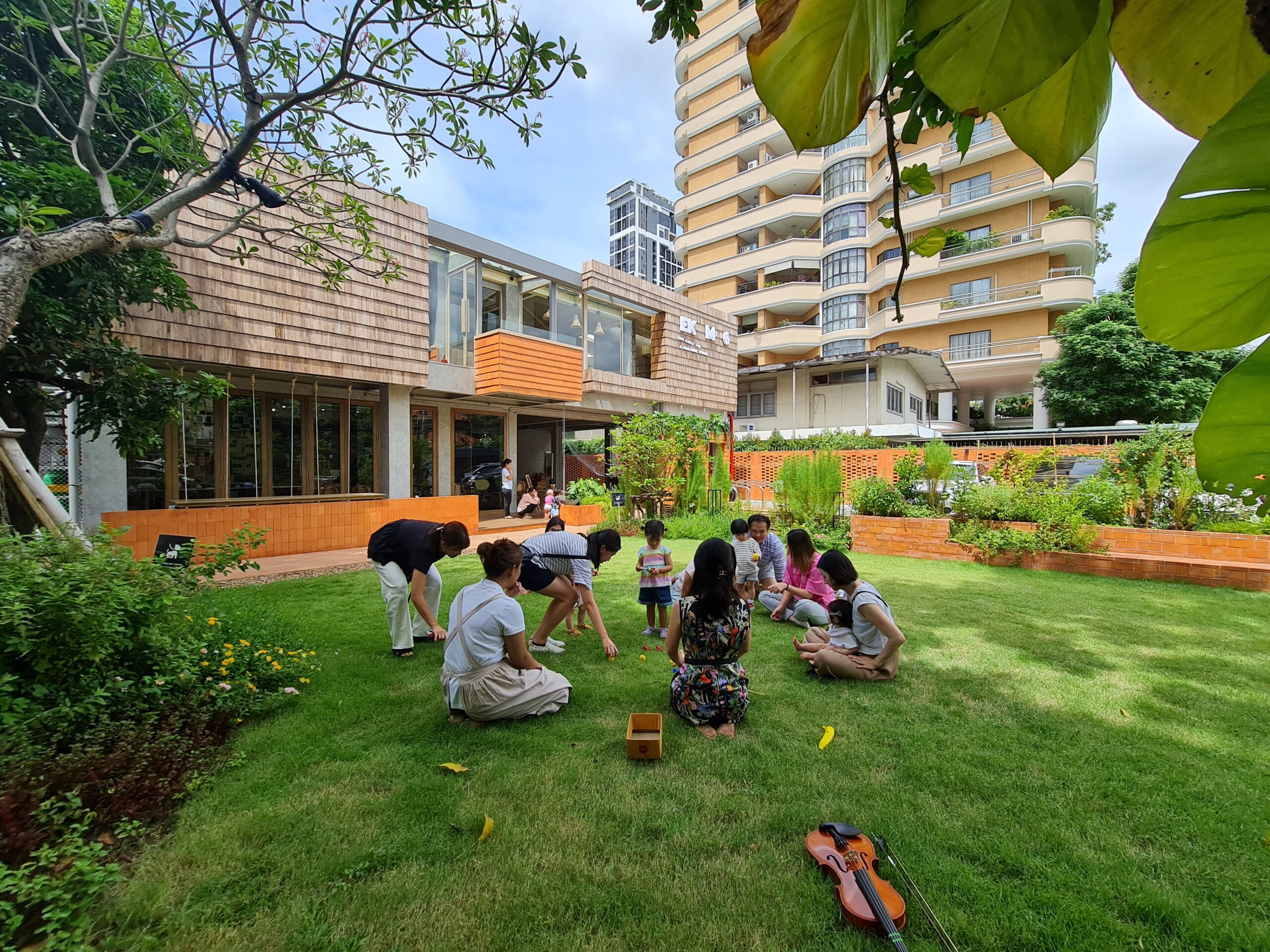At Little Treehouse Nursery in Thonglor, we believe that play is far more than just a pastime. It’s a powerful tool for learning and development that lays the foundation for a child’s future success. Our play-based approach to early childhood education fosters curiosity, creativity, and a lifelong love of learning.
The Magic of Play
Play is a natural and instinctive way for children to explore the world around them. It’s through play that they develop essential skills in language, problem-solving, social interaction, and emotional regulation. By providing a rich and stimulating environment filled with opportunities for play, we empower children to learn at their own pace and in their own way.
Key Benefits of Play-Based Learning
Cognitive Development: Play stimulates various areas of the brain, enhancing cognitive functions such as memory, attention, problem-solving, and critical thinking. When children engage in play, they actively construct their own knowledge, building neural connections that support future learning.
Social-Emotional Development: Play is essential for developing essential social-emotional skills, including empathy, communication, cooperation, and emotional regulation. By interacting with peers and adults in play settings, children learn to understand and manage their own emotions, as well as the emotions of others. They also develop important social skills, such as sharing, taking turns, and resolving conflicts peacefully.
Physical Development: Play is a natural way for children to stay active and develop their physical skills. Engaging in physical activities helps children build strength, coordination, balance, and gross motor skills. It also promotes healthy growth and development.
Creative Expression: Play encourages children to explore their imaginations and express themselves creatively. Through art, music, drama, and other forms of play, children can develop their creativity, self-expression, and problem-solving skills. They can also learn to appreciate different perspectives and cultures.
Love of Learning: Play fosters a positive association with learning by making it enjoyable and engaging. When children have fun while learning, they are more likely to develop a lifelong love of learning. This can have a significant impact on their academic success and overall well-being.
Play-Based Learning at Little Treehouse
At Little Treehouse, we’ve thoughtfully designed our classrooms and outdoor spaces to provide a rich and engaging environment for play. Our experienced educators create opportunities for both structured and unstructured play, ensuring that children are actively involved in their learning.
We incorporate elements from renowned approaches like Reggio Emilia and Montessori, encouraging children to follow their interests and explore at their own pace. Our focus on nature-based learning, inspired by the Green School initiative, further enhances the play experience, fostering a connection with the natural world.
The EYFS Framework and Play
Our play-based approach aligns seamlessly with the Early Years Foundation Stage (EYFS) curriculum, the leading framework for early childhood education in the UK. The EYFS emphasizes the importance of play in fostering holistic development, and we’ve integrated its principles into our daily practice.
Witness the Power of Play at Little Treehouse
We invite you to experience the magic of play-based learning at Little Treehouse Nursery. Schedule a visit today and see how our approach empowers children to learn, grow, and thrive.
FAQs
Play-based learning encourages children to learn by engaging in play, allowing them to explore, discover, and make sense of the world.
To implement play-based learning, provide a variety of activities and environments where children can explore freely, guided by a teacher who introduces concepts through play.
Montessori uses structured, hands-on activities that support independent learning, but it’s distinct from traditional play-based learning as it emphasizes self-directed activity.
Yes, role play is a type of play-based learning that allows children to explore different scenarios and practice social skills.
Building a block tower to understand balance and stability is an example, as it allows children to learn through experimentation.
Children playing “restaurant” and taking on different roles to practice math and social interaction is an example of role-play learning.
The teacher guides, observes, and gently introduces learning concepts through play, providing a supportive and engaging environment.
These strategies include role play, sensory activities, storytelling, and games that foster exploration, problem-solving, and creativity.
Role play allows children to act out scenarios, helping them develop social, cognitive, and language skills through experiential learning.
Sometimes it’s referred to as child-led learning or experiential learning.
Role play helps students practice real-world skills, improve social understanding, and learn empathy through simulated experiences.
Play is essential for cognitive, physical, and social development, helping children build skills and understand the world around them.
It’s an educational approach that uses play as a tool to encourage learning in a natural and enjoyable way.
Set learning goals, provide diverse materials, and create spaces where children can explore independently or in groups.
Playful learning nurtures creativity, curiosity, and social skills, making learning enjoyable and effective.
Role play builds empathy, problem-solving, communication, and social interaction skills in children.
Role play is an active, experiential learning style that supports kinesthetic and social learners.
Role play involves acting out scenarios, such as pretending to be a doctor, which can teach empathy and responsibility.
Role play allows children to explore emotions, roles, and social scenarios, enhancing cognitive and emotional growth.
“Play is the highest form of research.” — Albert Einstein
It enhances problem-solving, creativity, emotional regulation, and social skills.
The primary focus is on fostering natural curiosity and learning through exploration and play.
A plan that incorporates play into learning objectives, using activities that promote engagement with the material in a playful context.
Play-based learning creates a foundation for lifelong learning by making education enjoyable and intrinsically motivating.
It’s often based on constructivist theories, like those of Piaget and Vygotsky, which emphasize active and social learning.
The play method involves using games and activities to introduce and reinforce learning concepts in a relaxed setting.
This strategy involves using open-ended activities, guided play, and discovery-based tasks to support learning.
Provide a variety of materials, encourage exploration, and adapt activities to the interests of the children.
Use hands-on activities, encourage role-play, set up thematic learning centers, and give children choices in activities.




Leave a reply